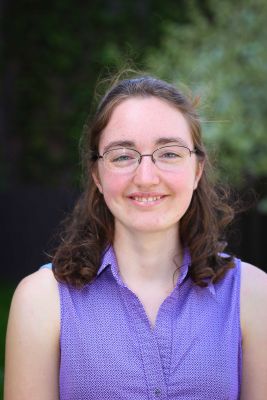
By Eliana Neufeld Basinger, a senior social work major from Findlay, Ohio
Scripture: Acts 10:34-43 (NRSV)
I wanted to write about this passage because this summer I was in the city where Peter had the vision from God that convinced him to go have this conversation with Cornelius, a Gentile. In Joppa, one of the things we saw was a possible site of the house of Simon the tanner, where Peter was staying. Later in the day, our group made another stop in the Ajami neighborhood of Joppa. We went there because it was where my fiancé’s Palestinian grandmother had grown up before her family had to flee when the modern state of Israel was created in 1948.
The most recent books of the Bible were written two thousand years ago, and the lives of the authors and the people they wrote about were, in some ways, incredibly different than our lives today. But that trip was a reminder that in other ways, the human condition hasn’t changed much. Sadly, one of the things that hasn’t changed is the human tendency toward discrimination and nationalism. In the past hundred years, millions of people have died in genocides around the world, including the Holocaust and genocides in places like Rwanda, Cambodia, Eastern Europe, and Darfur. Countless more have been displaced in ethnic cleansings. Governments, including our own, are increasingly being led by nationalists who see other groups of people as threats. Peter’s assertion that “God shows no partiality” and that people who follow God’s will in “every nation” are accepted is still a radical belief. I believe that our calling as Christians is to live out the message of the Gospel, which is still Good News to a troubled world.
Scripture: Acts 10:34-43 (NRSV)
Then Peter began to speak to them: “I truly understand that God shows no partiality, 35but in every nation anyone who fears him and does what is right is acceptable to him. 36You know the message he sent to the people of Israel, preaching peace by Jesus Christ—he is Lord of all. 37That message spread throughout Judea, beginning in Galilee after the baptism that John announced: 38how God anointed Jesus of Nazareth with the Holy Spirit and with power; how he went about doing good and healing all who were oppressed by the devil, for God was with him. 39We are witnesses to all that he did both in Judea and in Jerusalem. They put him to death by hanging him on a tree; 40but God raised him on the third day and allowed him to appear, 41not to all the people but to us who were chosen by God as witnesses, and who ate and drank with him after he rose from the dead. 42He commanded us to preach to the people and to testify that he is the one ordained by God as judge of the living and the dead. 43All the prophets testify about him that everyone who believes in him receives forgiveness of sins through his name.”




